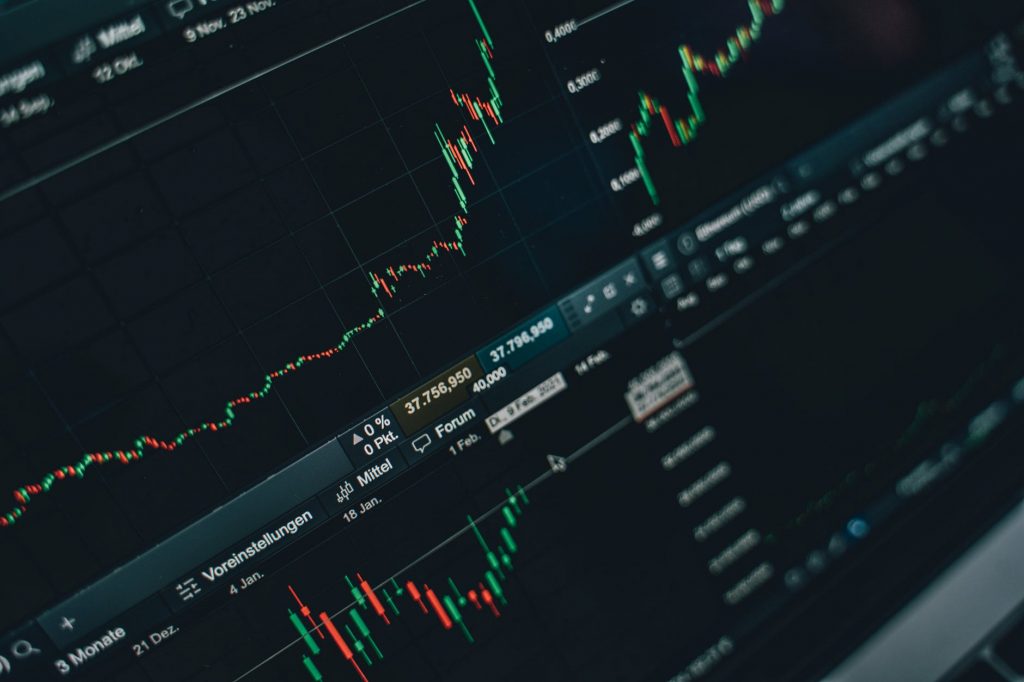ESG Investing
ESG investing has seen significant growth in recent years. Individuals are increasingly using ESG criteria to evaluate trading opportunities. In this article, we break down key themes and definitions and offer a complete guide to ESG investing in the UK, from stocks to watch and funds to explore.
Best UK Brokers For ESG Investing
-
You can trade a dozen major indices, including the Dow Jones, NASDAQ and S&P 500 with competitive spreads at FXCC. However, it’s disappointing that FXCC doesn’t offer any individual stocks - a huge drawback against competitors like CMC Markets, which offers thousands of shares.
-
RoboForex provides one of the broadest selections of real equities and stock CFDs spanning the US and 14 regional European markets, including direct access to the NASDAQ. It’s also one of the few brokers to offer a dedicated platform for stock trading, sporting leverage up to 1:20 and a robot builder that enables traders to automate and backtest stock trading strategies.
-
There are hundreds of major global shares and indices available. You can also trade IPO shares and ETFs in the MT4 platform, depending on jurisdiction. You can expect a reasonable 0.1% commission on US shares, plus a range of analysis features to help you stay ahead of stock market news.
What Is ESG Investing?
The simple definition is that ESG trading refers to sustainable investments that balance financial returns with long-term impacts on society and the environment. ESG criteria consider non-financial performance indicators, such as the carbon footprint of a company, how ethical its supply chain is, and the diversity of its management team.
Note, ESG investing terminology can easily be confused with subtle variations:
- Impact Investing – Using capital investments to create a positive outcome
- Ethical Investing – Channelling equity into companies whose practises and values match your personal beliefs
- Socially Responsible Investing (SRI) – Selecting investments based on ethical criteria instead of financial data

The key ESG principles are explained below.
Environmental
Put simply, how environmentally conscious are the operations and outputs of a company? Criteria could include an organisation’s renewable energy use, pollution and waste levels, its drain on natural resources, and its landscape protection.
The risk management practices and strategies a company uses in respect of its environmental impact can be analysed to assign an ESG rating. For example, are global guidelines and regulations being followed for commodities trading to reduce carbon emissions? Previous corporation greenwashing trading claims in the news may also be of interest.
Social
Social factors consider relationship trends between a company and the communities in which it operates. Examples could include employee education support, a robust charitable wealth management framework, healthcare benefits, or local community impact initiatives. When ESG investing, social ratings can also take into account the diversity of a workforce and its supply chain concerning modern slavery.
ESG investors should keep an eye on newsletter articles and media reports relating to a company’s impact on the people it operates around. Annual rankings and lists are also published by the likes of the FT and LinkedIn.
Governance
Governance relates to how robust and ethical an organisation’s management framework is. Factors to consider include performance transparency, the data accuracy of reports and statistics, the diversity of boards, and compliance with tax responsibilities.
Many companies now publish details on their governance structure in corporate sustainability white papers and annual statements.
History Of ESG
ESG investing is not a new concept. Reviews and articles indicate the simple approach has been adopted as far back as the 1800s. More recently, the United Nations launched investment principles in 2006, encouraging the incorporation of ESG criteria into traditional financial markets. Many globally recognised institutions with varying market sizes became signatories including across Europe and Asia. Aligned companies include Zurich, Aviva, Barclays, Blackrock, Bloomberg, Morningstar, and UBS.

Today, the rise in ESG investing continues to boom. The value of assets sitting under responsible trading strategies stood at $22.9 trillion in 2016. And figures suggest the volume and demand for ESG-friendly stocks and funds are likely to continue as investors increasingly look for trading opportunities that allow them to support companies behaving ethically.
Why Invest In ESG Stocks?
ESG trading is gaining traction as the green agenda and responsible investing move front of mind. Moreover, articles from the Economist, Wall Street Journal, and the New York Times suggest this trend strengthened during the COVID 19 pandemic. People are increasingly asking questions of stakeholders when it comes to social issues like employee health and the safety of working conditions.
Investing data reports from the likes of Google Scholar and Harvard all support the notion that ESG-focused companies are capable of producing superior financial results vs corporations uninterested in their social and environmental impact. ESG-conscious companies also tend to experience reduced price volatility. This is eroding the traditional view that responsible investing doesn’t generate profits.
Another advantage of ESG trading is portfolio risk management. Investing in sustainable energy stocks, for example, is a good way to diversify your portfolio and spread risk across sectors. Electric vehicles and Tesla shares are a popular example of how trading in ESG-friendly stocks can yield impressive returns.
How To Evaluate ESG Stocks
As regulators and markets grapple to introduce standardised ESG metrics, there are multiple ratings agencies and analysts passing judgement on the suitability of stocks and funds. Popular providers of ESG investor ratings include Fidelity and Morningstar.
Company facts, previous events, market research, and employee insights are used to paint investors a picture of how successfully or unsuccessfully, a stock is at meeting ESG objectives. Machine learning algorithms also sift through company credentials, financial reporting, and published quotes to understand whether greenwashing may cause firms to underperform vs those with true commitments to ESG criteria.

As you start ESG investing, carefully review a company’s public announcements and track record of enhancing the green agenda, such as reducing international travel for business, where necessary, or improving the diversity of its boards. A negative screening investing strategy can also be used – excluding companies involved in certain industries, such as tobacco, alcohol, and pornography.
Top 5 ESG Stocks To Watch In 2025
Stocks with exposure to the European Green Deal, climate change initiatives, and China’s net-zero ambitions are worth keeping an eye on. Shares showing particular promise include:
- Tesla Inc – Focused on using renewable energy to power the automotive industry and with an expected growth rate in 2021 of up to 59%
- General Motors Company – Also in the electric vehicle space, General Motors is making all the right sounds with an expected growth rate in 2021 of up to 24%
- The AES Corporation – Investing in renewable energy and storage, AES is popular in ESG investing circles with an expected growth rate in 2021 of up to 12%
- FuelCell Energy Inc – Specialising in ultra-clean power plants, FuelCell Energy is aiming to revolutionise the environmental impact of power plants with an expected growth rate in 2021 of up to 57%
- Enphase Energy Inc – Investing in global energy technology for the solar industry, Enphase Energy is another frontrunner in the ESG investing space with an expected growth rate in 2021 of up to 44%
Note, the expected growth rates listed above are based on online publications and should not be considered financial advice. Always do your own research and due diligence when ESG trading.
ESG Trading Platforms
The good news is that there are multiple trading platforms that make ESG investing easy. IG is our top choice for ESG trading brokers. IG offers a long list of suitable stocks and financial products. It also ranks the top ESG stocks to watch out for and provides a free training academy so you can learn about impact investing.
Also among the best ESG trading platforms in the UK is Interactive Brokers. The broker offers an advanced market scanner with ESG ratings on over 6,000 companies. They compile trusted external ESG rankings so you can filter for stocks and funds that meet you criteria.
ESG Trading Strategies
It is important to consider stocks that align with the values you prioritise. Consider using the results from an ESG investing agency first to examine company performance against each criteria. A good example is the Morningstar Sustainability Rating report which ranks investments from 1 to 5 ‘globes’ based on their industry average. Alternatively, many brokers offer ETF trading and mutual funds that use ESG metrics as part of their assets under management (AUM) allocation.
ESG quantitative investing strategies are also increasing in popularity. Quant systems connect data points using mathematical models and statistics techniques. Timeline predictions for future price movements can be projected using historical data. As relative data becomes more available, accurate, and comparable, investors can leverage information to inform ESG trading decisions.

Education
There are many learning sources when it comes to ESG investing. P&I has regular ESG investing conference presentations with themes including the global adoption of sustainable strategies in countries such as China, Singapore, Malaysia, Hong Kong, Japan, and the UK. Online ESG investing quizzes and questionnaires are also a good way to test your sustainable trading knowledge.
Final Word On ESG Investing
ESG trading is on the rise with many investors having sustainable goals as part of their portfolio requirements. Data indicates this boom is more than just a current trend. Access to increased education on the topic, market insights, transparent corporation reporting, and personalised strategy building is allowing individuals to be more selective with their investments.
To get started ESG investing, we’d recommend opening an account with IG or Interactive Brokers.
FAQ
What Does ESG Stand For?
The E in ESG stands for Environmental, the S stands for Social, and the G stands for Governance. ESG ratings are used to measure a company’s attitudes and operations towards the environment and the communities that they operate in.
How Can I Understand The Basics Of ESG Investing?
ESG investing is about pursuing financial returns whilst trading in companies that seek to have a positive impact on those around them. There are many ESG investing books, published magazine articles, FCA discussions, video tutorials, podcasts, and webinars online to build an understanding of this growing trend.
What Is The Morningstar ESG Sustainability Rating?
Morningstar’s ESG investing rating allows traders to understand how 20,000+ ETFs and mutual funds are meeting environmental, social, and corporate governance challenges. Investments are ranked between 1 (bottom of the industry group) to 5 (top of the industry group).
Do ESG Stocks Outperform Non-ESG Stocks?
Some fund managers and data providers believe that those corporations with good ESG compliance can achieve greater financial returns, especially in the long run, vs those that do not consider their social and environmental impact. Only time and continued evidence of returns can validate the trend.
How Can I Start ESG Investing?
Getting started ESG trading is straightforward. Simply open an account with an online broker, deposit funds and choose from their selection of ESG-friendly stocks and funds. Some of the best brokers for ESG trading include IG and Interactive Brokers.

